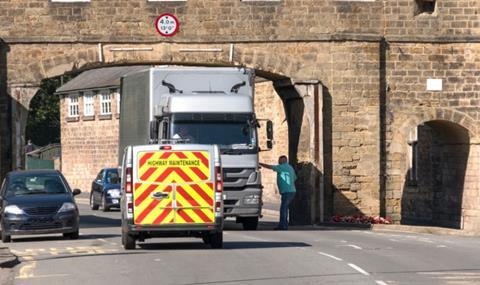
The senior traffic commissioner’s (STC) statutory documents have been refreshed and include changes to how operators and drivers will be treated following bridge strikes.
STC Richard Turfitt has dusted down the 15 guidance documents and updated the way the TCs will approach the exercise of their statutory functions.
Most of the changes have been made to bring the legal position up to date and incorporate recent key upper tribunal cases.
A significant addition relates to bridge strikes in the document on good repute and fitness and now states: “When incidences are brought to the attention of a traffic commissioner they will wish to consider the culpability of the operator and transport manager and they may be called to attend a public inquiry.
Read more
- OTC reveals details of 99 operators reported for bridge strikes
- Network Rail clamps down on HGV operators involved in bridge strikes with ‘Wise Up, Size Up’ campaign
- Companies whose drivers hit bridges could face heavy fines
“The driver can also expect to be called to a hearing and may face a period of suspension.”
Bridge strikes and collisions with rail infrastructure have become a serious problem in the last few years, with Network Rail claiming the annual bill is £23m.
An office of the TC spokesman said: “The responsibility for avoiding bridge strikes falls on all operators and transport managers.
“They must make sure routes are planned in advance to reduce the risk of bridge strikes, while giving their drivers all the training and information they need.”
Other changes to the guidance documents include an updated position on driver employment status; applications for periods of grace; the approach to abusive behaviour towards officials and the increased penalties for mobile phone use.”













